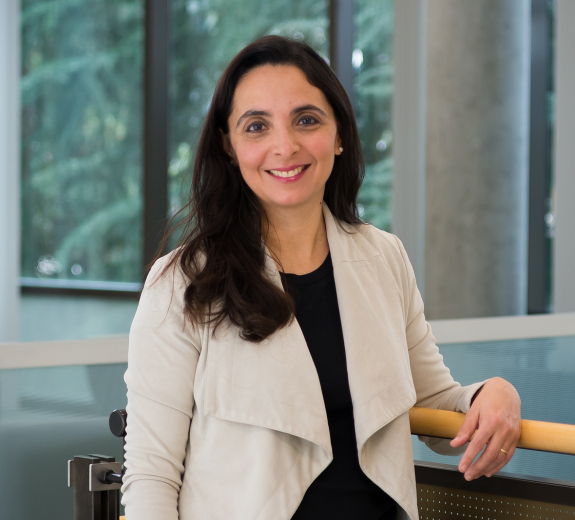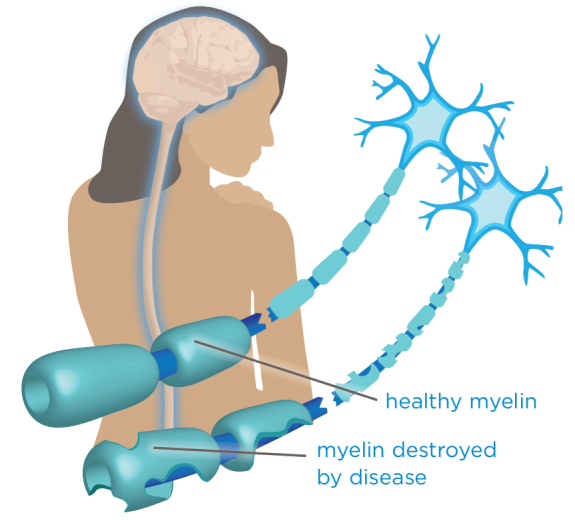Multiple sclerosis (MS) is extremely difficult to study because the structure the immune system attacks — called the myelin sheath — is buried deep in the brain and spinal cord.
“For autoimmune diseases that affect tissues like the skin, researchers can usually biopsy and study these samples,” says BRI’s Estelle Bettelli, PhD. “But the brain is such a complex organ that it would be too invasive to perform biopsies of multiple sclerosis plaques.”
That’s why Dr. Bettelli’s team develops sophisticated MS models to investigate its mysteries and pursue innovative therapies. Despite the pandemic, her team has kept their research moving forward, working toward solving some of the biggest mysteries of this complex disease. We recently asked her for an update on BRI’s MS progress.





